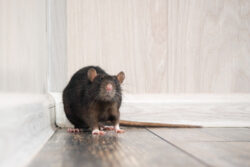If you live in Florida, you might think that you don’t have to worry about rodents invading your home this winter. After all, the weather is mild and there are plenty of natural predators to keep them in check. However, you might be surprised to learn that rodents can still be a serious pest problem for many Florida homeowners, especially during the cooler months. Here are some reasons why they might seek shelter in your home this winter, and what you can do to prevent rodents.
What to Know About Rodents in Florida
Rodents are warm-blooded animals that need to maintain a constant body temperature. When the temperature drops outside, they look for warmer places to nest and breed. Your home provides them with a cozy and comfortable environment and easy access to food and water sources. Rodents can squeeze through tiny gaps and cracks in your walls, roof, foundation, or vents. They can also chew through wires, pipes, insulation, and wood, causing damage and fire hazards.
Rodents are not only destructive, but also dangerous. They can carry and transmit various diseases, such as hantavirus, leptospirosis, salmonella, and plague. They can also contaminate your food and surfaces with their urine, droppings, and parasites. Rodents can also attract other pests, such as fleas, ticks, mites, and lice, which can cause further health problems for you and your pets.
Preventing Rodents from Your Florida Home
The best way to prevent rodents from entering your home this winter is to seal any gaps and cracks that they might use as entry points. You should also keep your yard clean and tidy, removing any debris, clutter, or vegetation that might provide them with shelter or food. Look to store your food in airtight containers and dispose of your garbage regularly.
If you suspect that you have a rodent infestation in your home, you should contact a professional pest and wildlife control company as soon as possible. They can inspect your property, identify the type of rodent, and apply the most effective treatment methods to eliminate them safely and humanely.



